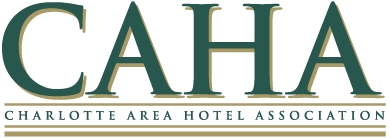It’s National Travel and Tourism Week. What, you forgot? You never knew it existed? Me neither.
But it provides a handy excuse to check in on the local tourism industry — an idea embraced by the Charlotte Regional Visitors Authority. Few, if any, parts of the national or local economy have suffered more than hotels, restaurants, bars and other people-intensive businesses, for obvious reasons. Fourteen months of Covid-19 brought mandatory capacity and travel limits as well as ongoing consumer hesitancy.
With declining trends of infection, hospitalization and death and rising vaccination rates — 50% of North Carolinians are at least partially vaccinated — more and more people are ready to get out of the house. Or at least start planning to get out of the house.
“I’m pretty excited about the recovery we’re starting to witness,” visitors authority CEO Tom Murray told me Thursday. “Particularly on the leisure travel side. We’re starting to see (hotel) occupancies get back to pretty strong levels.”
According to figures compiled by industry analyst STR, beginning March 20 and running through May 1, Mecklenburg County hotel demand eclipsed 100,000 rooms during each of those seven weeks. Prior to that, demand had not reached 100,000 in a week since the pandemic started in March 2020.
Revenue also reached pandemic-era highs, ranging from $8 million to $10 million during that same period, compared with revenue of $5 million to $7 million per week over the rest of this past year.
Leisure travel, mainly in the form of friends and relatives visiting, has been the primary source of tourism business thus far, Murray said.
As vaccinations ramp up, people are eager to spend time with one another after many months apart. It will take longer for corporate and convention travel to rebound, though recent surveys by national marketing and consulting firms Destination Analysts and Northstar Meetings Group show growing appetites for both, likely in the second half of this year.
There are glimmers of hope, true, but industry analysts predict it will take a couple of years for tourism to return to pre-pandemic levels. In the Charlotte region, direct visitor spending was $7.8 billion annually, fueling 147,000 jobs. After a surge in layoffs last spring, things improved but, overall, local hospitality employment is off by 17% since Covid.
An illustration of how far there is to go can be found in hotel occupancy rates. According to STR, 68.3% of rooms were filled in 2019; last year, it was 43.3%. And even the recent two-month run of gains pales when compared to 2019: Between March and May of this year, occupancy rates soared by Covid-era standards — to a little more than 50%.
Hotel revenue plummeted 63% during the pandemic year in Charlotte, falling to $302 million from $808 million. More than 25% of area bar and restaurant revenue, a combined $1.1 billion, was lost during the same period. Combined taxes on restaurant meals, hotel rooms and rental cars, money used to pay for sports and cultural venues, among other projects, slipped to $98.6 million in fiscal 2020, down from $123.1 million the previous year.
Charlotte’s top tourism source has long been corporate travel. It’s not a leisure destination and it’s a second-tier convention and trade show site, though a nearly finished $127 million renovation and expansion of the convention center is aimed at bolstering that business. As a major financial center and with American Airlines’ second-largest hub providing a large selection of direct flights, corporate travel has been reliably strong.
Murray told me Thursday that when major employers return to their offices, business travel will naturally follow. Large companies including Bank of America and Wells Fargo are planning to have employees back in significant numbers starting around Labor Day — meaning corporate travel is still months away.
He’s hoping more government recovery grants and loans for hotels, restaurants and others can serve as a stopgap as the rebound builds. State government received $5.3 billion from the American Rescue Plan Act, while Mecklenburg and Charlotte were allocated a combined $364 million, though the money will be paid in 50% installments a year apart.
Despite the staggering losses, and ongoing struggles for restaurants and bars to find workers for re-staffing, Murray said the recent gains demonstrate the sector’s resilience: “We’re on our way to recovery.”
